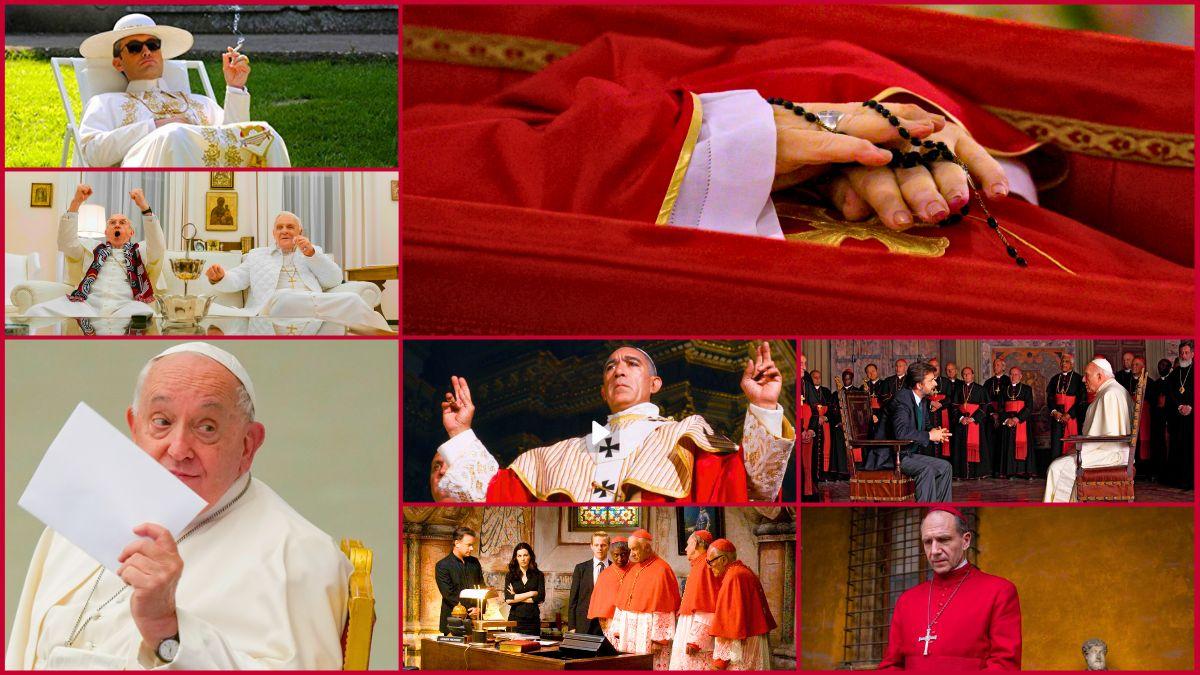
From Pope Francis to the papal conclave: Why cinema is fascinated with the Vatican
The Hindu
White smoke from the Sistine Chapel signals the election of a new pope, inspiring a century of cinematic portrayals.
In the coming days, white smoke shall billow from the Sistine Chapel’s chimney once more, signaling the election of a new pontificate to the Christian world. The death of Pope Francis at age 88 on Easter Monday, has drawn renewed attention to the intricate and archaic ritual of the papal conclave. The secretive ceremony has been so theatrically loaded that it’s often been catnip for filmmakers over the past century.
For all his modesty and rejection of papal grandeur, the late Holy Father proved to be one of the most cinematically-inclined popes in modern memory. Not only was he portrayed on screen, but he also seemed to inspire a variety of ecclesiastical cinema. During his twelve-year papacy, cardinals, pontiffs, and bishops, both fictional and otherwise, seemed to populate the screen with greater frequency than in any era since the heyday of biblical epics. In a curious twist of fate, the man who eschewed the trappings of office became cinema’s favourite pope.
The irony, of course, is that the papacy has always lent itself to spectacle, whether the popes liked it or not. And the sealed, whispered process by which 235 cardinals choose a new pontiff is ripe with drama — be it a political thriller in vestments or a crucible of ideology, ego, and God.
Last year’s Oscar-winning Conclave, based on Robert Harris’s novel and directed by Edward Berger, is the latest to capitalise on the eponymous election process. In it, Ralph Fiennes plays a cardinal caught in the crossfire of scandal and revelation. The film’s climactic turn, centering on the sudden rise of a reformist Mexican cardinal with a deeply personal secret, doubles as an homage to the late Pope Francis himself.
Conclave takes one of the world’s most cloistered rituals and turns it into something bracingly cinematic. It’s a kind of a locked-room thriller that cleverly demystifies the pomp without deflating its gravity. Ballots are burned, secrets are bartered, and the Apostolic Palace steadily holds trial for unchecked ambition. In dramatising the pageantry and paranoia of papal succession, Conclave breaks down and reframes the process as political theatre.
But before Conclave dramatised these cloak-and-dagger rituals, there was Nanni Moretti’s We Have a Pope (Habemus Papam), a 2011 comedy-drama that imagined the burden of papal selection as an existential crisis. The newly elected pontiff, played by Michel Piccoli, flees his obligations, overwhelmed by the absurdity of being chosen to shepherd a billion souls. The film traps the cardinals inside the Vatican, technically forbidden from leaving until the new pope is revealed. Meanwhile, the chosen one wanders Rome and undergoes therapy — administered, naturally, by an atheist.
Moretti’s satire was one of the few to ask, “What if the pope just didn’t want to do it?”; taking the enormity of the position and humanising the Holy Father through unadulterated panic. It also prefigured the deep, sometimes agonised reflection on leadership and discomfort with authority that Francis would come to embody. That a pope might be reluctant (incapable even) was no longer heresy, but human.





















 Run 3 Space | Play Space Running Game
Run 3 Space | Play Space Running Game Traffic Jam 3D | Online Racing Game
Traffic Jam 3D | Online Racing Game Duck Hunt | Play Old Classic Game
Duck Hunt | Play Old Classic Game











